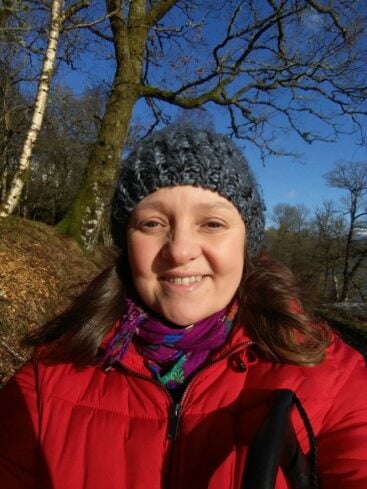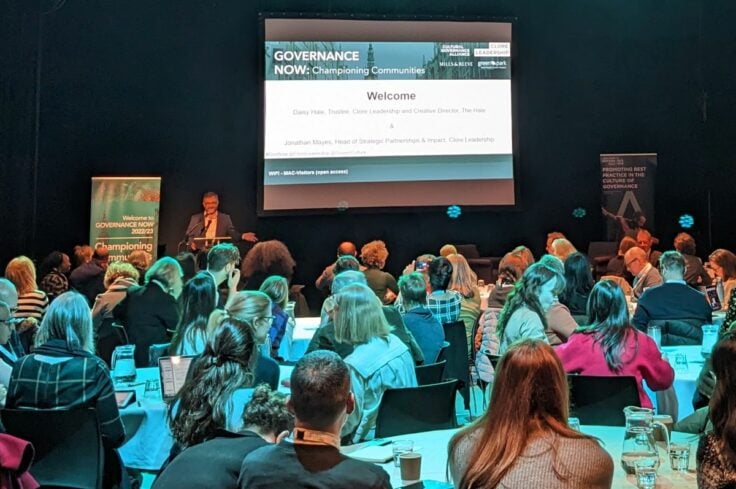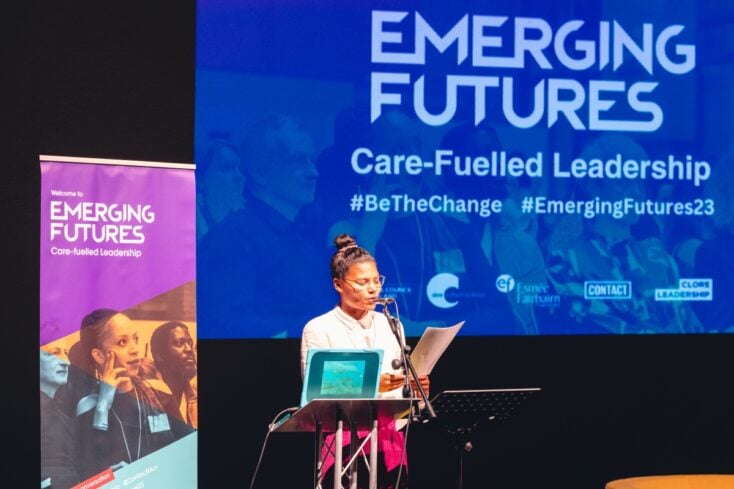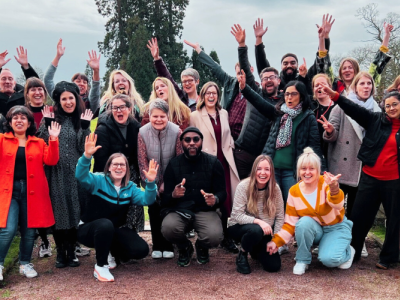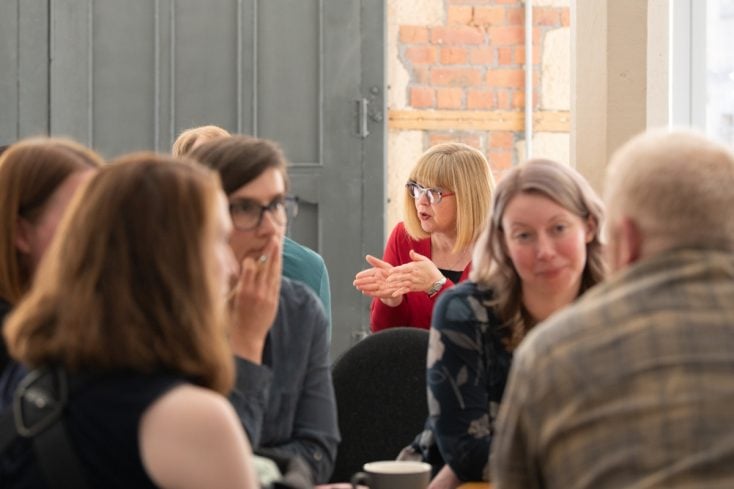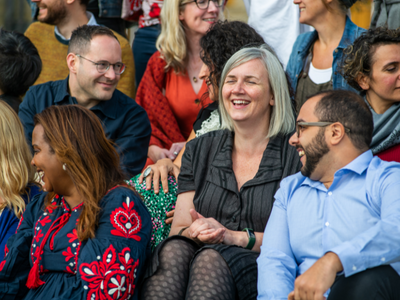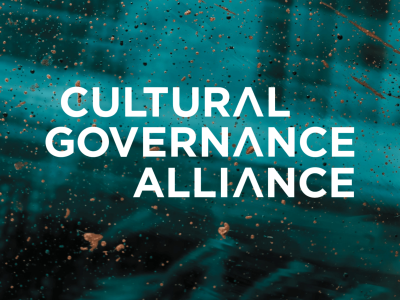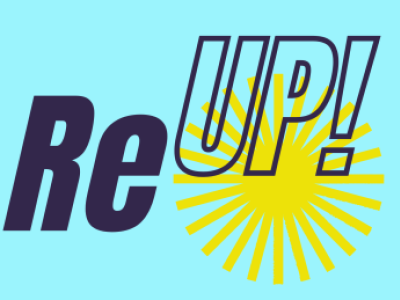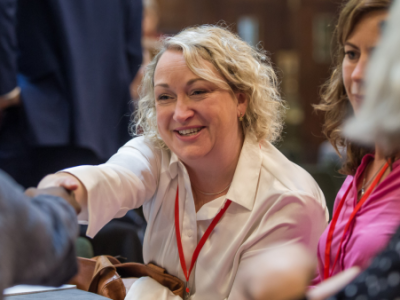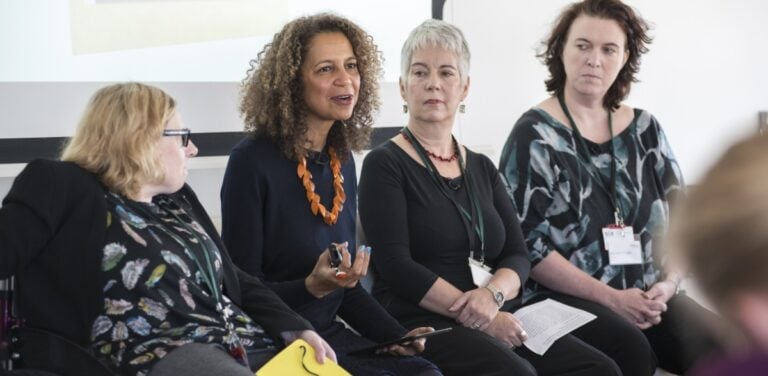Who’d be a trustee?
by Jonathan Mayes
Joining a board is a lot to ask of someone. It’s a commitment and a responsibility that, if anything, has become an even bigger ask in the light of current economic, political, social and environmental challenges. Funders are placing ever more responsibility on the shoulders of trustees as they look to ensure that their money is well spent, that charitable objectives are being met. Stakeholders want to know that the organisation they care about is in safe hands and that they can trust the decisions being made. Risk is high. Rewards, seemingly, low.
So where’s the incentive? Why become a trustee? It’s a pertinent question to ask as we enter Trustees Week (6-10 November), this year with a theme of #ManyVoices, celebrating the role of individual trustees. For most people involved with cultural governance it’s also on top of the ‘day job’ – indeed, a quick glance at the Clore Leadership network (over 2,500 of you) shows that many are, or have been, trustees whilst also running projects, juggling freelance contracts, working with multiple clients, leading teams etc. etc. Seeing that commitment to supporting the sector given by so many of our alumni is inspiring and, acknowledging the passion that so many clearly demonstrate for our sector, leads me to interrogate motivations.
What’s in it for you?
I’m sure there are many, many answers to that question, but to get to the root of it I think it’s important to understand the foundations of governance. What is it that is being asked of trustees? Looking at the language helps (more on that, later, too). ‘To govern’ comes from a nautical word in Greek ‘kybernan’, originally meaning “to steer or pilot a ship”. Meanwhile a ‘trustee’ (from the Norse ‘treysta’ meaning “to trust, rely on, make strong and safe”) entered common usage in the 17th Century for a “person who is responsible for the property of another”.
To govern’ comes from a nautical word in Greek ‘kybernan’, originally meaning “to steer or pilot a ship”
Understanding the roots of these words helps us to understand what is going on with governance. Trustees are being relied upon, ‘trusted’, to help decide on the direction of an organisation. At its core, this is what is required of boards and it is also what so often motivates people to become trustees, knowing that, just as with the responsibility of piloting a ship, boards’ decisions have an impact on everyone connected to that ship.
It’s this real life impact of leadership and governance that we aim to explore in Clore Leadership’s programming. I was looking back at a great example of this from earlier this year as we ran a webinar exploring the ‘Pressures of Wellbeing’. Our panellists highlighted the role of trustees in listening; helping staff in organisations to feel value. In the words of Clore Leadership trustee, Sarah Weir, “listening really takes time and trustees need to realise that when they are doing that listening, things are going to be heard differently by different people… we have to be aware of language – things mean something different and we need to ensure we don’t misunderstand what we’re hearing.” The issue around support for trustee was also discussed in the webinar, recognising the challenge of attracting and retaining board members – particularly those for whom governance is scary and off-putting, who are likely intimidated by the idea of “having to read a 200 page board paper and range of finance spreadsheets.”
How do we demystify what often feels hidden or opaque? How to support those who might choose to become ‘pilots’ for our sector’s organisations? Ship’s pilots need the tools and experience to guide their course: a compass; to be able to see what’s coming (from every direction); a map (possibly more than one!); and they need to know the capabilities of their boat (its strengths and weaknesses). We’re always looking for examples of where organisations are providing great tools for their boards – case studies of boards offering support to their existing trustees and to prospective new board members. Earlier this week we published a great example of this type of support in action (De-Mystifying Board Recruitment) , looking at how Stockton Arts Centre (ARC) welcomed artists and freelancers as board observers at every board meeting – something all organisations might learn from.
What strikes me about the experience at ARC is how they were able to show the value and benefit of governance through taking a relatively simple action of inviting people in to their meetings. As a sector, we’re not very good at talking about the benefits and plus sides of being a trustee: of the pride and joy that come when you see the organisation you’re helping to ‘steer’ succeed in its mission; of the leadership, negotiation and interrogation skills inevitably developed; of the brilliant people you get to meet and work with; and of the satisfaction of knowing you are contributing to the success of the cultural sector.
As a freelancer, there is a huge amount of uncertainty in the industry at the moment, and hearing how that was being discussed at Board level was really valuable.
ARC board observer
Seeing this example and the example of so many of Clore Leadership’s alumni in trustee positions gives me faith in humanity (at a time when it can feel in short supply). At Clore Leadership we focus our governance support on those who are supporting others, particularly on the tools boards need to be able to succeed and to ensure that those sitting around the table are representative of our society:
- We convene the Cultural Governance Alliance, introduced by Hilary Carty in a recent blog for Arts Council England.
- We run in-person events, including next month’s Cultural Governance Forum: a networking breakfast at the British Library on 6th December, where we will be hearing form Orlando Fraser, Chair of the Charity Commission
- We try to stay on top of topical issues through regular webinars – look out for a few set of three governance webinars in Spring 2024
- As mentioned above, we promote examples of best practice – with a particular focus on where equity, diversity and inclusion are being achieved in governance. Do let us know about any examples you’d like to have used by writing to [email protected]
Yes, it’s a challenging thing to join a board, but it’s massively important to ensuring the future of our sector and, if you dig under the surface, hugely enriching. The cultural sector does indeed from #ManyVoices, but it still needs many more! Is yours one of them?



